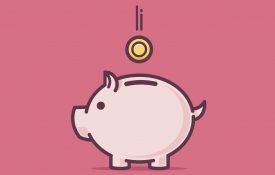-
How Hierarchy Can Help Teams Scale New Heights
Do teams accomplish more when they enlist a strict hierarchy, or are they more effective when everyone is treated as an equal? A new study looking at 100 years of Himalayan mountain climbing expeditions helps shed light on this question, showing that hierarchy can be a mixed bag in high-stakes teams, both helping and hindering performance. An international team of researchers from Columbia University and INSEAD in France concluded that from the board room to the surgery suite, hierarchy within high-stakes teams can help elevate team performance -- but this boost can come at a potentially steep cost. After analyzing over 5,000 Himalayan climbing teams, psychological scientists Eric M.
-
Working While Sick May Be Bad for Business
Being sick is bad enough, but coming into work while under the weather can be miserable. This week President Obama proposed a plan to provide millions of US workers the chance to earn up to seven days per year of sick time. While many Americans are eligible for paid sick leave from their employers, the White House estimates that 43 million American workers receive no sick leave at all. In a landmark study published in the Journal of Occupational Health Psychology, psychological scientist Gary Johns of Concordia University in Montreal found evidence that coming into work while ill—called “presenteeism”—may not be the best option for workers or businesses.
-
Women Face Backlash for Speaking Up at Work
From the floor of the US Senate to auditions for orchestras, researchers have found that men are often seen as more competent and powerful for talking, while women are more harshly criticized, more frequently interrupted, and judged as less competent for the same behavior. “Either she’s barely heard or she’s judged as too aggressive. When a man says virtually the same thing, heads nod in appreciation for his fine idea,” write psychological scientist Adam Grant and Facebook Chief Operating Officer Sheryl Sandberg in a recent New York Times op-ed.
-

Sleep Deprivation Linked To Inappropriate, Unethical Behavior on the Job
As workers in the United States continue to work more hours every year, the National Sleep Foundation finds that Americans on average are also gradually getting fewer hours of sleep each year. For many workers
-

Attitudes About Who Brings Home the Bacon Lag Behind Economic Reality
A team of psychological scientists hypothesized that people’s deep-rooted beliefs about gender roles may be slower to change than the major behavioral shifts evidenced within society and the workforce.
-
It Pays to Have an Eye for Emotions
From Gordon Gekko in Wall Street to Miranda Priestly in the Devil Wears Prada, successful people in the workplace are often shown as tough and single-minded, with little concern for the feelings of others. In most fields, intrapersonal “soft skills” are rarely given the same weight as more technical qualifications. But a new study finds that an eye for emotions can really pay off.

